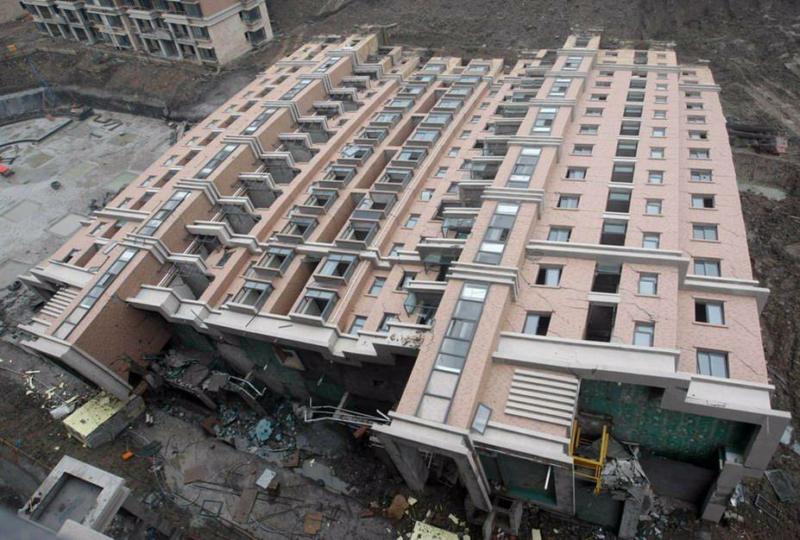I am sure that many geotechnical designers have either been asked this question or have had to answer it internally in order to price a project. After the offer has been prepared, comes the negotiation phase, where the owner of the project starts asking questions about the “high” price (in his opinion) or about a different offer he has had which was half that price!
I would like to point out some aspects that come into play in this negotiating tango between the Consultant and the Owner and some pitfalls that can come about with relation to this issue.
In geotechnical engineering a design is never “easy” or “simple” and this is because the ground is inherently variable, anisotropic and with minor details that cannot be easily assessed but nevertheless can have a detrimental effect during construction. Do we forget this, many times in our practice?

So how do you go about performing a geotechnical design? A geotechnical investigation is executed initially with a predefined number of boreholes, usually less than we would like and a selective number of field and laboratory tests are executed. This investigation may be based on prior experience of the area but often it is not. The depth and location are governed with minimum information and mostly based on the structure to be constructed. Then with the geotechnical information gathered and evaluated the subsurface is formulated and the geotechnical design is executed, based on some form of standard (Eurocode, LRFD etc).
So the question now becomes “how many man hours will your engineers work determining the price you will ask for?” So in an effort to reduce the cost of design, the limited geotechnical investigation parameters are used with some partial factors of safety and the calculations are executed with nice software for bearing capacity or slope stability etc and the design is completed, on time, satisfying the standards and everybody is comfortable over the outcome. So how many man hours does such a procedure require? Don’t you think you should reduce your offer?
This is a recipe for disaster. In order to cut the cost of design, many things that should have been evaluated are not, inexperienced engineers work in the office with the software that they know so well but at the same time they may completely lose touch with the actual conditions or the geotechnical details that will actually control the performance of the project.
The cost of performing a geotechnical design is not merely the man hours spent doing some mainstream calculations but the time and experience that has been devoted to evaluate the most probable conditions and the most unfavorable conceivable deviations from these conditions and how they will affect the proposed project. This is not an easy task; it needs great experience (shouldn’t this be paid?) and many hours of thinking, sketching, performing simple hand or computer calculations, revisiting the site and the site investigation information etc. But this cannot be easily measured or quantified and produced as a cost estimate. So how can two Consultants compete when one routinely executes such practices and the other doesn’t? Sometimes luck favors the bold so the second consultant could have the same track record as the first one. And if a failure or excessive deformation etc happens then it is easy to blame it on “the unforeseen geological conditions”. No harm done! Just the budget and time of the project may significantly increase, maybe increase orders of magnitude in relation to the reduction that was achieved with the negotiation of the geotechnical design fees or with the selection of the geotechnical consultant with the lowest bid.
So Geotechnical Designers should advertise in more detail what they actually do, advertise the experience and expertise they pose in house and the way they tackle a geotechnical design. They may need to make the owner aware of what is at stake with an improper geotechnical design even if it meets all available standards.
Owners should take a step back and think; is the lower bid the best way to go? Is the reduced price that was achieved after hours of negotiations worth the risk of an improper geotechnical design? What is the gain of a reduced cost of design in relation to the actual cost of construction? Never forget that you get what you pay for and this in geotechnical design can really have a significant cost!


Si exactamente todo tiene que ver con:
Horas hombre de ingenieros y técnicos.
Tecnología invertida en equipos y softwares.
Cantidad de ensayos a realizar en terreno y en laboratorio.
Experiencia y antecedentes de la compañía.
Good article! If an engineer wants to honestly make your design with a required probability of failure, say, at 10% according to standards or codes, you will not likely be able to beat those who use PoF of 20% , or increase the values of strength parameters to make POF of 10%. Some engineers may use the mindset in casino where people will take chance if the probability of win is greater than 50%. There is still a great chance that the structure will not fail at PoF of 20%, or will fail in a quite long effective time period, and therefore these engineers may get a better reputation and more contracts because they seems save money for their clients.But especially when dealing with public safety, using a higher than standard FoS means unethical because the public is put in more risky situation.
Drinking 2 bottle of beer and driving may not cause accidents but is unethical.
Sorry for a typo. It should be “PoF” and not “FoS” in the last sentence in the first paragraph.
It should be “But especially when dealing with public safety, using a higher than standard “PoF” means unethical because the public is put in more risky situation”.